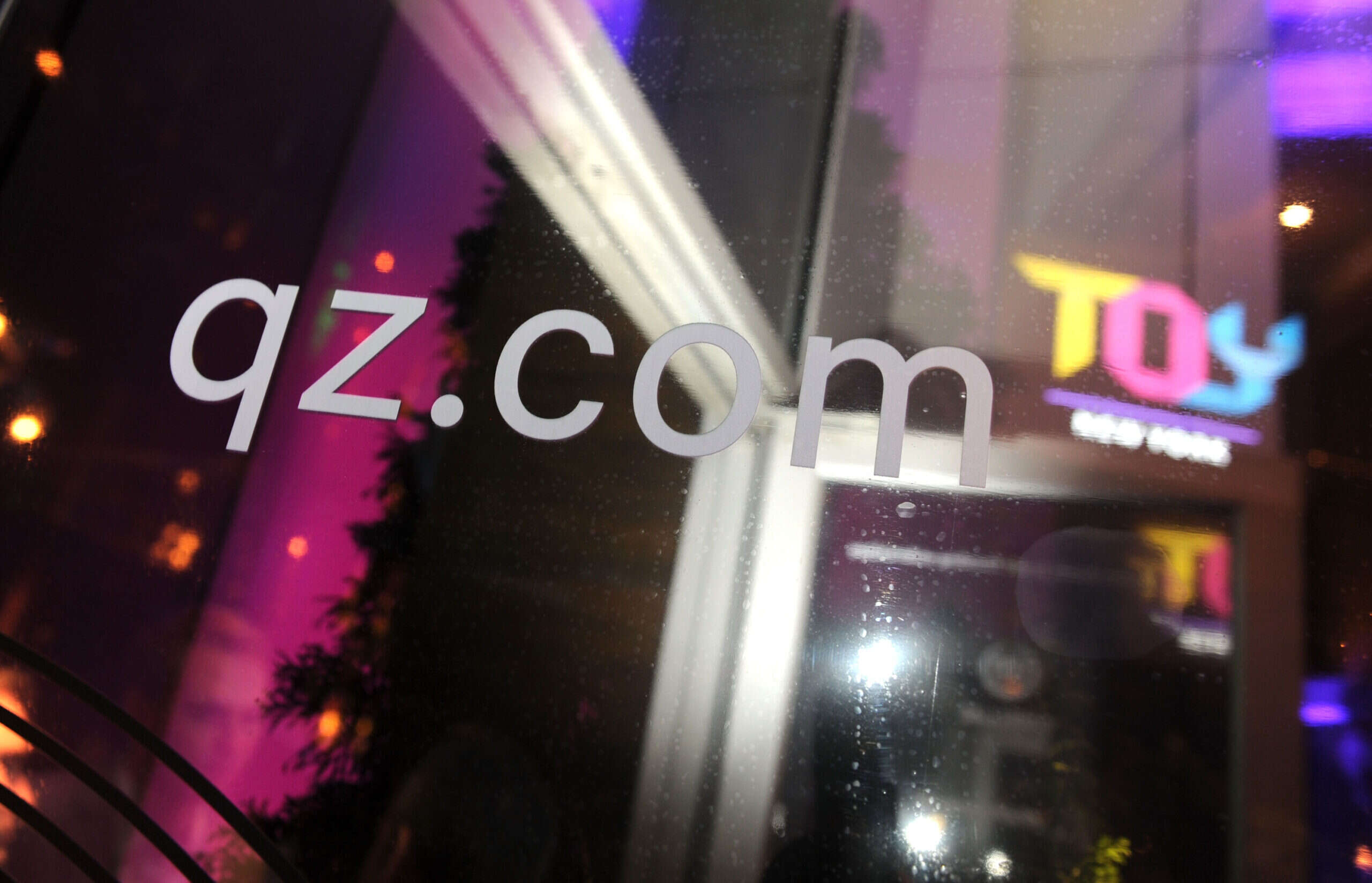
Business news site Quartz has permanently dropped its paywall.
The ten-year-old outlet, which currently has about 25,000 subscribers, will continue to encourage visitors to register and will retain a number of paid membership schemes.
But it said it is making “the lion’s share” of its work available for free.
The news comes three and a half years after Quartz put up a partial paywall on premium content, and less than three years after it moved to a metered paywall on all its articles allowing people to read a limited number for free before being told to pay.
The publisher has continued to introduce new paid products to its offering as recently as February, when it debuted its Quartz Africa paid membership which includes a Members’ Brief newsletter. However it also launched a free Quartz Africa Weekly newsletter.
The publication said paying members will continue to get access to exclusive emails on both the global Quartz membership and the Quartz Africa membership.
But co-founder and chief executive Zach Seward said the newly-free content “includes all of our articles, field guides, essentials and more”.
[Read more: Quartz CEO (and new owner) Zach Seward on being a startup again – ‘It ought to be an emboldening moment’]
He added: “Our members have clearly expressed that their number one motivation for paying for a membership is that they love Quartz and want to support the truly global and thoughtful business journalism that we do.”
The publication said the decision to lower the paywall “is the result of Quartz’s growing international readership and its mission to best serve this audience by making its journalism accessible to everyone”.
Seward told the Financial Times he wanted to focus on “the right kind of subscription” such as more niche offerings within the wider free site. He said the paywall had been “limiting Quartz’s influence”, including in terms of traffic numbers.
Last month Quartz’s global editor-in-chief Katherine Bell told Press Gazette that surveys of Quartz Africa readers had “found that there was a set of people who were very loyal to Quartz Africa in general, and who loved the newsletter and who clearly had a level of loyalty and interest in Quartz that we believed we could take further”.
[Read more: Quartz editor Katherine Bell – Six things I’ve learned about how to run a global newsroom]
Thursday’s paywall announcement was coupled with news that the publication is launching a new, free section of its website called the “Guide to Making Business Better”, which a spokesperson told Press Gazette would feature “articles on the challenges facing mission-driven businesses and how to achieve goals and improve the workplace”.
Quartz has been owned by Seward and Bell since 2020 when they led a management buyout from Japanese media giant Uzabase, which had bought the brand for around $86m two years earlier. It was originally founded by Atlantic Media.
Quartz’s decision to drop its paywall runs contrary to the prevailing direction among many publications.
The last major British publication to drop its paywall was The Sun, over six years ago.
Local publishing giant Gannett, which owns USA Today and UK chain Newsquest, has been rolling out paywalls across its properties.
The Atlantic, formerly Quartz’s parent organisation, rolled out a paywall in 2019. Fortune magazine adopted one in May 2020.
And DMGT’s inews.co.uk has been one of the most recent publications to begin phasing in a metered paywall in recent months.
The strategy is paying off for many major publishers. The New York Times announced in February it had rocketed through its ten million subscriber target three years ahead of schedule, albeit assisted by its $550m acquisition of The Athletic and its 1.2 million subscribers.
Similarly, the long-paywalled Financial Times said it hit one million digital subscribers last month. It is now trying to lure in even more with a low-price, minimalist app called FT Edit.
[Read more: 100k Club – Top English-language news publishers reach 28m paying online readers]
A no-paywall strategy seems to have worked for some, however. Most prominently, The Guardian announced in December it had hit one million paying members globally, all of whom volunteer their money freely – although it is now reportedly set to experiment with charging for its news app.
And in Italy, member-funded, paywall-free Il Post has garnered 50,000 subscribers using podcasts and newsletters to tempt readers into paying.
Picture: Craig Barritt/Getty Images for Quartz
Email pged@pressgazette.co.uk to point out mistakes, provide story tips or send in a letter for publication on our "Letters Page" blog
